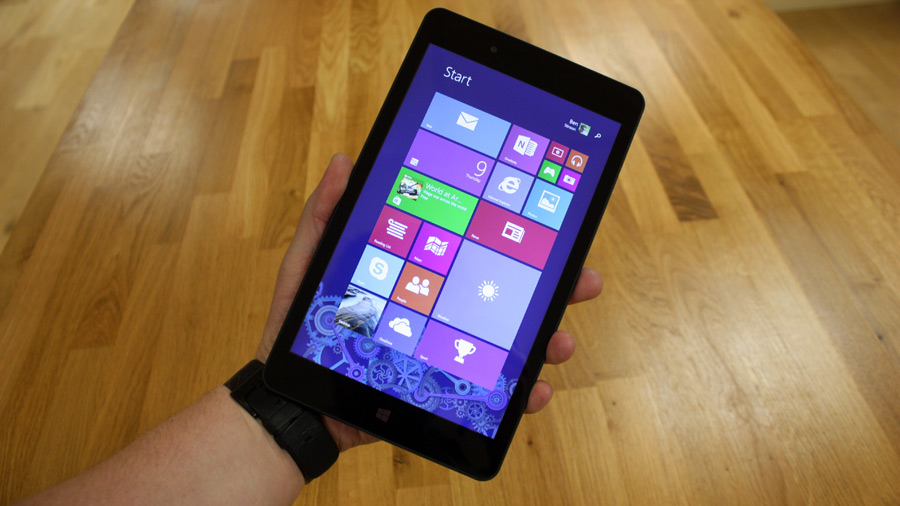TechRadar Verdict
This is a very impressive budget tablet which is perfect for casual users, with the flexibility to juggle homework and YouTube.
Pros
- +
Great build quality
- +
Bright, high-contrast screen
- +
Good connectivity
Cons
- -
Low resolution screen
- -
Limited RAM and power
- -
32-bit Windows
Why you can trust TechRadar
When you think of cheap tablets, the undeniable truth is that you're probably thinking of a plastic Google Android tablet to keep your kids happy. If I had suggested just a few short years ago that buying a fully-fledged Windows tablet (not those awful Windows RT models) for less than £100 was even possible, I'd probably have been pointed and laughed at by all and sundry.
How about if I suggested that this was now entirely possible with the Linx 8, which can be easily found for less than £90 (around $134, AU$173). Fortunately for Microsoft, the age of cheap, capable Windows tablets has well and truly dawned, and Linx's 8-inch offering is perfectly poised to steal a share from underwhelming Android alternatives like the Acer Iconia 7.
We also reviewed the Linx 7, its smaller and cheaper counterpart, earlier this year as well as the Linx 10, its bigger brother.
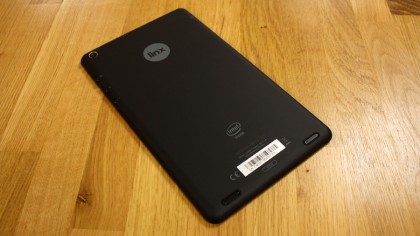
However, it doesn't arrive at the cheap end of the Windows tablet party all on its own – there are a raft of alternatives such as the slightly more expensive, but equally unknown Pipo W2, or even the Argos MyTablet, which comes in even cheaper at only £69.99 (around $104, AU$135) – albeit with a few compromises.
There's a 10.1-inch version, unsurprisingly called the Linx 10, which I've reviewed separately, should you be after something a little larger.
Design
Whilst the Linx 8 may initially look like yet another non-descript black rectangle, it is actually a surprisingly well-made tablet with an understated, yet reasonably attractive design that – from some angles – could almost be mistaken for an iPad mini, were it not for the capacitive Windows logo that sits beneath the display (which brings up the Start screen). Above the screen is the only other feature to note up front beyond the screen, and that's the 2MP front-facing camera.
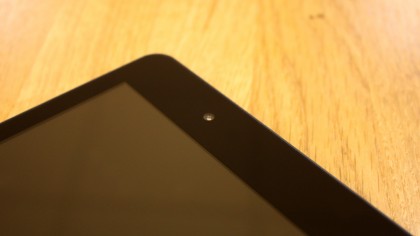
Flip the tablet around and you'll find a smooth yet tactile rubberised plastic that covers the rear and the side edges of the Linx 8, making it a lot easier to handle, and less of a fingerprint magnet than some – it's certainly my choice of material if solid metal finishes can't be included at this price. The 2MP rear-facing camera sits in the top left of the rear panel, and at the bottom are two separate stereo speakers, which are each covered by a metallic grille.
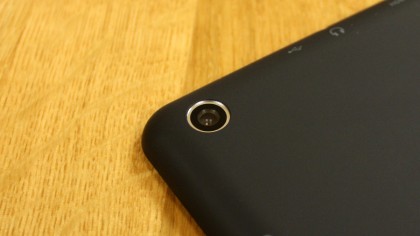
Of course, if you're looking for the same kind of connectivity a laptop affords, you'll be sorely disappointed, but on the bright side, Linx has incorporated an easily accessible microSD card slot on one side, whilst a micro-HDMI port, micro-USB port and 3.5mm headphone socket sit on the top edge – all welcome connectivity, especially the HDMI socket, which affords the ability to output to a TV or monitor. If you equip the Linx 8 with a third-party OTG cable, you'll also be able to easily use any number of full-sized USB accessories.
It may sound like a minor point, but I really like the three external buttons on the Linx 8; the circular power button and separated volume buttons are raised and easy to find without any mistake.
Overall I found the Linx 8 to be very comfortable, well balanced and nicely made – a real surprise for such a budget-priced tablet.
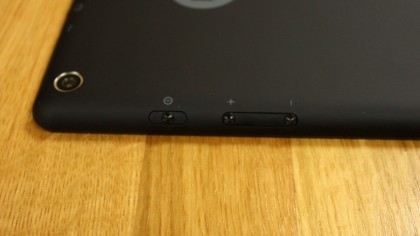
Specifications
Measuring 215 x 125 x 8.9mm, the Linx 8 is only slightly taller but not as thick as the similar Pipo W2, and overall feels like a slim and rather compact package, especially when you consider that Intel's SoC is definitely bigger than other, less powerful chipsets found in many other 8-inch tablets. At 377g it weighs 27g more than the Argos MyTablet, but definitely doesn't feel like a strain to hold, with enough weight to feel suitably solid.
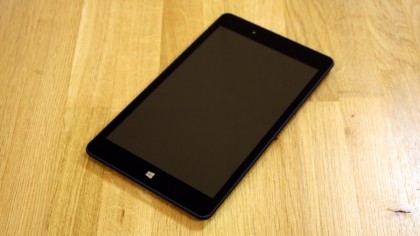
Here's the full spec sheet:
- Processor: Intel Bay Trail-T Quad Core Z3735F 1.83GHz processor
- Operating System: Windows 8.1
- Memory: 1GB LPDDR3
- Display: 8-inch 16:10 IPS HD (1280 x 800) with 5 point multi-touchscreen
- Graphics: Integrated Intel HD Graphics
- Storage: 32GB eMMC
- Camera: Front 2MP and rear 2MP
- Networking: Integrated 802.11 a/b/g/n, Bluetooth V4.0
- Connectivity: 1 x micro-HDMI, 1 x micro-USB, 1 x microSD card
- Audio: Built-in stereo speakers and microphone
- Battery: 4,000 mAh li-ion
- Dimensions: 215 x 125 x 8.9mm (H x W x D)
- Weight: 0.83lb (377g)
